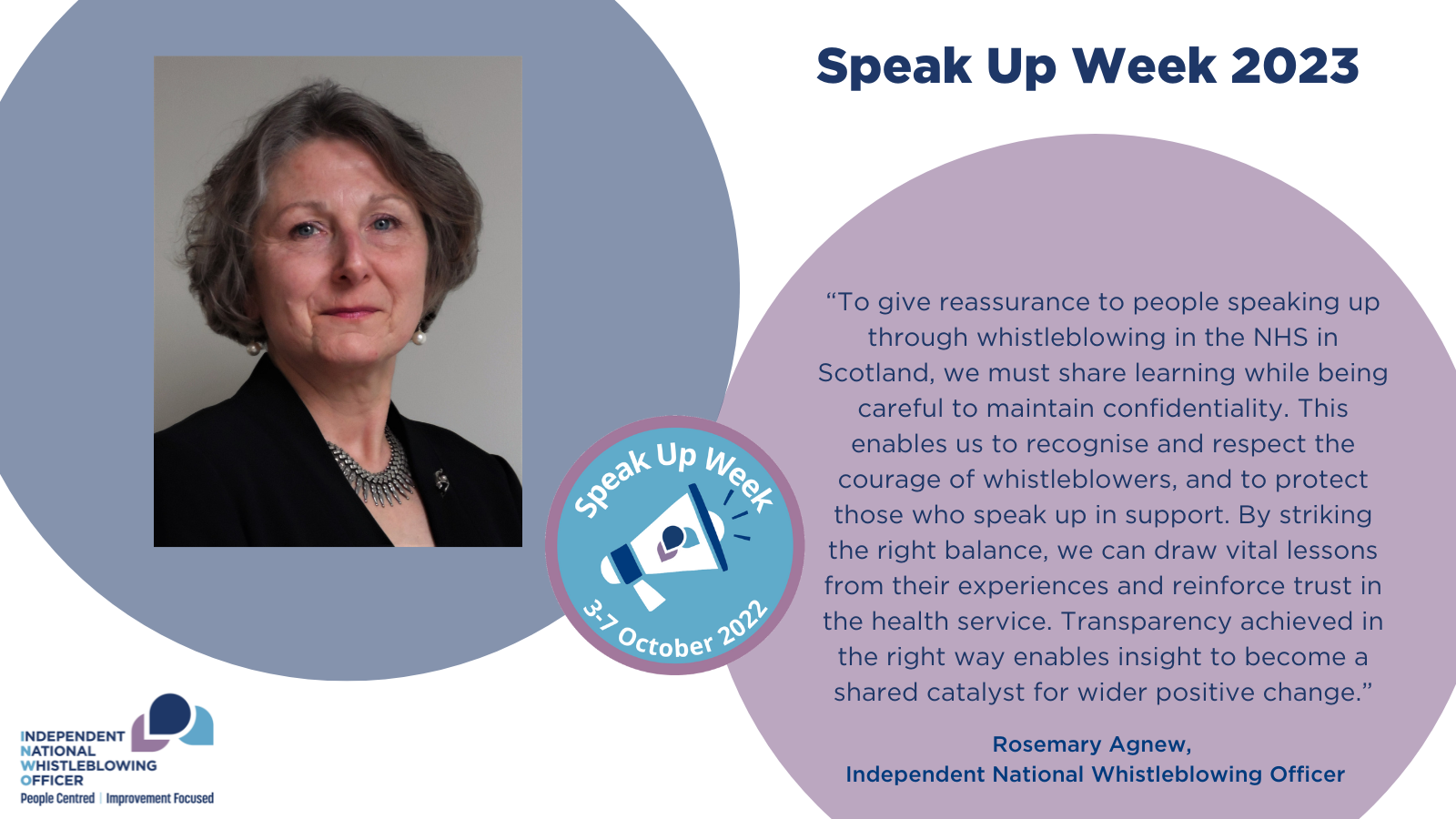
Everyone benefits from sharing learning - patients, staff, the organisation, and the public - and those benefits are powerful. Improved efficiency, increased employee satisfaction, more innovation, better services for patients and achievement of objectives.
The challenge is to promote a learning from concerns ethos so that you can reap the benefits. Concerns about confidentiality shouldn’t be a barrier to sharing learning.
Shift the focus when thinking about sharing learning
When a whistleblowing concern is raised and during an investigation, the focus is on minimising the amount of people who know about the concern and protecting the identity of the whistleblower. However, when the investigation is over, its time to shift the focus. The identify of the whistleblower and crucially everybody involved in the concern still needs to be protected, but the new focus is on sharing the learning as widely as possible. The whistleblower and the specific details of their concern are no longer the focus.
Involve other people in your learning
Once you’ve figured out what learning you’ll focus on, you should think about who should be involved. It’s up to you to involve who you think is best. But you may want to think about involving the whistleblower, witnesses, and staff responsible for overseeing the learning and improvements. NHS Boards are encouraged to use action plans to record and monitor improvements and provide a basis against which to report progress and share learning.
What information to share
While it is helpful to provide as much information as possible, this should not be at the expense of confidentiality. Think about the audience. When you are sharing with a wider audience, there may be no need to provide information about a specific department, hospital, staff roles or the medical specialism, dates should be redacted as should reference numbers. Provide information which celebrates the learning and improvements, tell people about how risk has been reduced or that a new process has resulted in positive patient experiences.
Address barriers
If confidentiality is perceived to be a barrier to sharing learning, address this by exploring this topic within your organisation, adjust the level of detail shared and put systems in place to support.
Ways to share
Make learning from concerns a priority. Create opportunities to share learning from concerns, be creative. Consider events like lunch and learns with senior leaders, after action plan reviews, and don’t forget about the annual speak up week.
Take away
Sharing learning whilst maintain confidentiality is achievable and will bring powerful benefits to your organisation.
Speak Up Week is an opportunity to engage staff about the benefits of speaking up and the difference it can make within the NHS in Scotland. For more information, visit the Speak Up Week webpage.